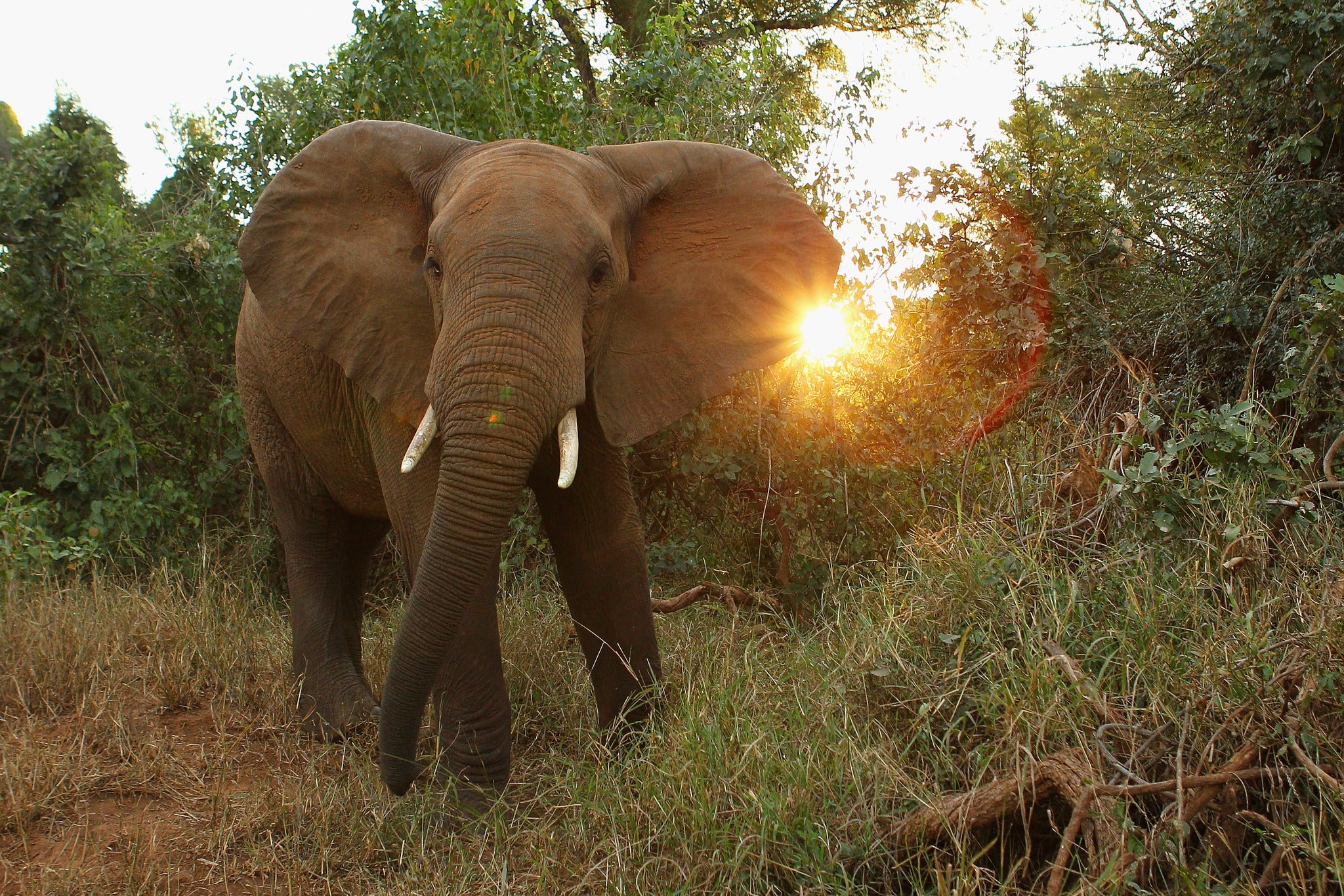Elephant Appeal: The continent I fell in love with may be changed forever
My two sons may never experience Africa and its wildlife like I had the chance to

I have been travelling to Africa for many years to support the work conducted by the Elton John Aids Foundation, the charity I first established in 1992 to reduce the incidence of HIV/Aids worldwide.
While there, I have seen inspirational examples of human courage and fortitude, as we have helped fund projects across the continent to alleviate the impact of HIV and Aids and there have been wonderful examples of progress achieved.
Only this month the foundation, with the pharmaceutical company Mylan, pledged to donate $1m for the elimination of mother-to-child transmission of HIV in Nigeria. It will provide women who have tested HIV-positive with treatment so as to be able to prevent their children being born with the virus.
My time in Africa, however, allowed me more than just to witness the important work the foundation undertakes. It also enabled me to grow to understand, and fall in love with, the natural splendour which helps make the continent so very special.
I regularly visit to wallow in the beauty of the landscape and to witness the animals that live there in their natural habitat. My favourite spot is in the shadow of the Drakensberg Mountains in Southern Africa, which I try to visit most years. That spot is how I can only imagine a Garden of Eden would be.
In the winter months you can see elephants, lions, buffalo, leopards and all the other great African fauna set against the dry, golden-brown winter bush. In the summer, the lush green foliage also brings with it migrant birds and the wonder of newborn animals.
There is little as magical as waiting in the bush as dawn rises and seeing the landscape take shape as the newly rising sun illuminates the day and reveals the elephant grazing, impalas bouncing between the trees and – when fortunate – a lion or other big cat gearing itself up for the hunt.
_1.jpeg)
What I witnessed there and in other parts of Africa helped inspire me when I was asked to contribute songs to The Lion King. I wanted to try to capture the majesty of the African scenery and the animals that live within it so that people could feel what I do when I witness it first-hand, and therefore appreciate its emotional impact too.
This is why I am so shocked to understand how these wild animals, particularly elephants, are once again being depleted in such numbers by poachers, and why I am so delighted to give my support to The Independent’s campaign with Space for Giants to raise awareness of this issue and provide funds to try to help combat it.
The figures are indeed shocking. It is believed some 100 elephants a day are now being slaughtered in Africa to feed the demand for ivory. Those responsible are often in hock to criminal gangs, which as well as poaching are involved in human trafficking and drug smuggling.
Already this year more than 40 tonnes of tusks have been confiscated while being smuggled internationally, with China the top destination for the illegal trade.
I am fortunate enough to be the father of two young boys, Zachary and Elijah, who are aged two and 11 months. One of the aspects of their upbringing I have been particularly looking forward to is introducing them to Africa and its wildlife so they will hopefully grow to love it as much as I do.
With the wildlife crime epidemic having become so severe, I now realise it is possible that I may never be able to. Already it is likely that many of the animals being most actively hunted will no longer be living truly in the wild but limited to protected, highly managed populations in a limited number of wildlife sanctuaries.
This is what has already happened to rhinoceroses and, without all our help, is what will next happen to our remaining elephants.
Yet, if action is not taken and poaching further escalates, then the situation could be even worse. This would mean that by the time my boys are old enough to appreciate many of these amazing species, they would only be able to do so by seeing them in zoos.
To donate now go here

Join our commenting forum
Join thought-provoking conversations, follow other Independent readers and see their replies